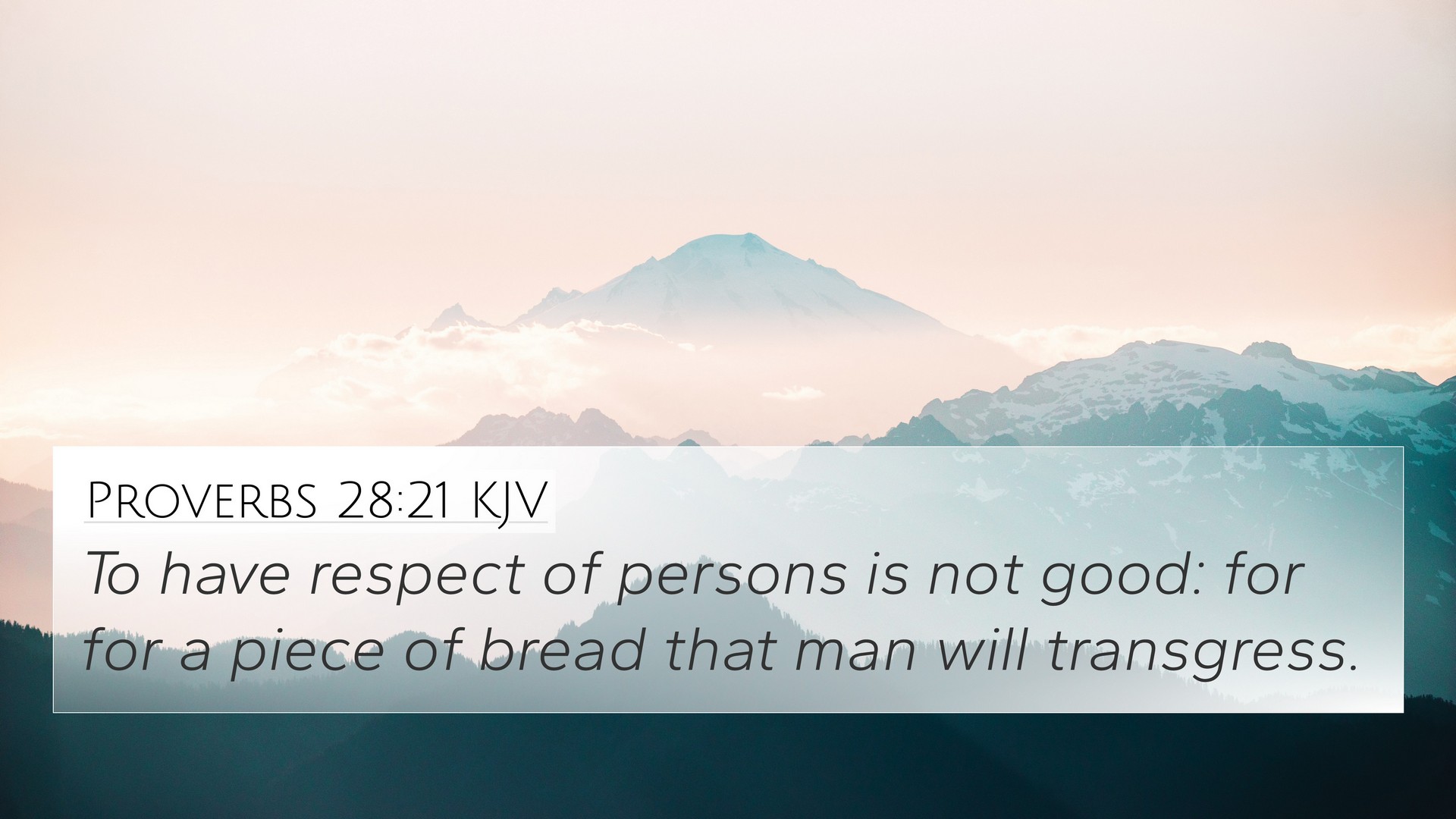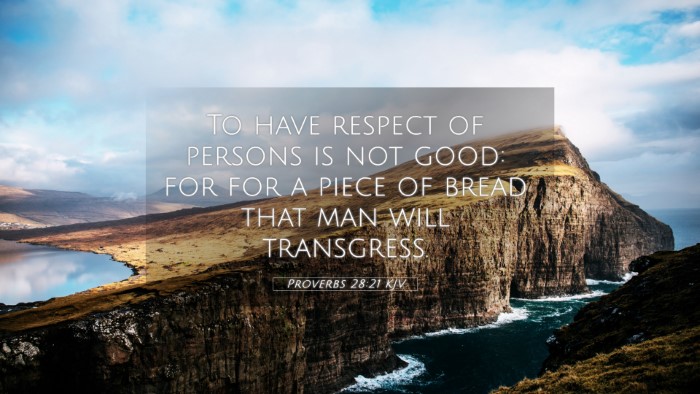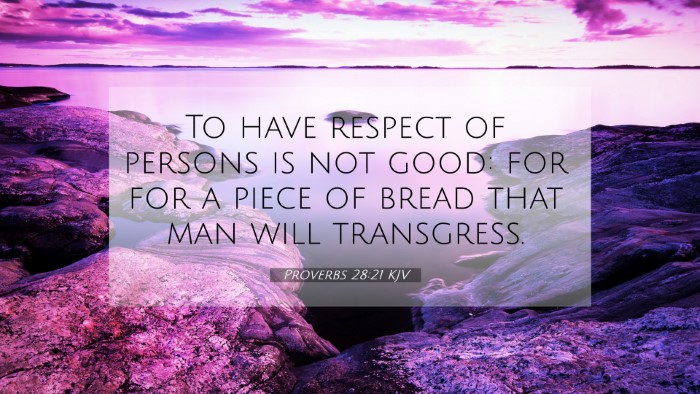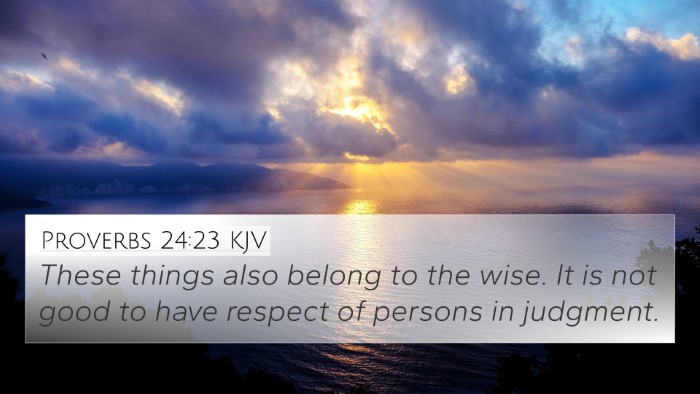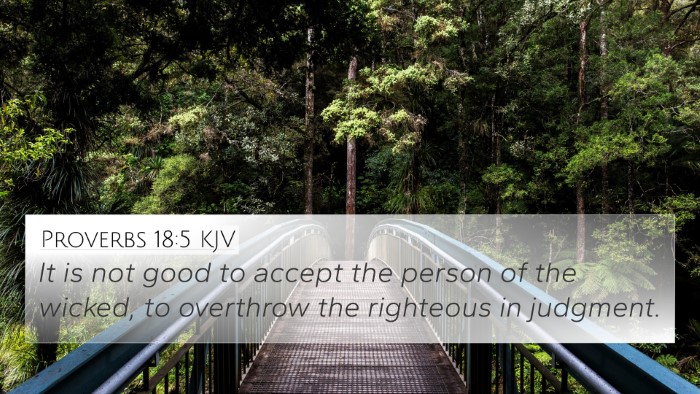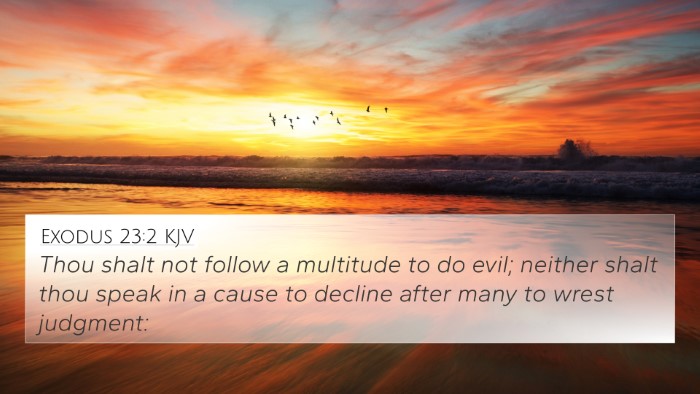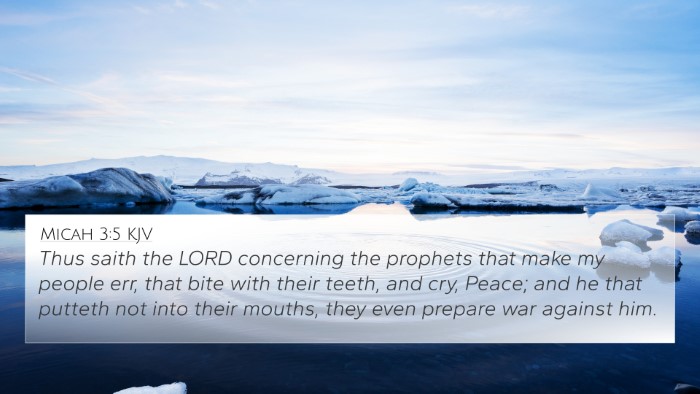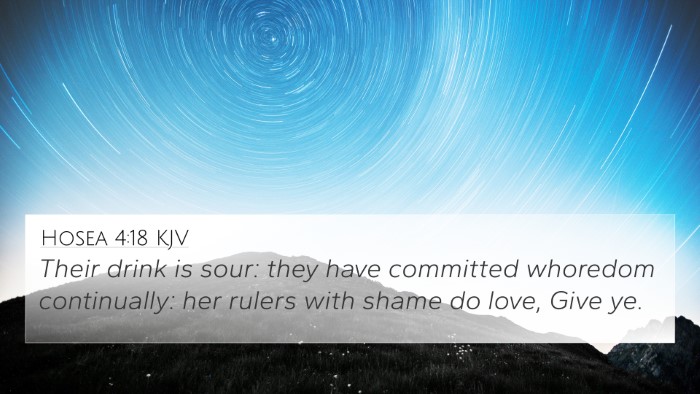Understanding Proverbs 28:21
Proverbs 28:21 states, "To have respect of persons is not good: for for a piece of bread that man will transgress." This verse speaks to the issue of partiality and favoritism, highlighting the dangers of allowing social status or material wealth to influence our judgments.
Summary of Key Themes
- Partiality: The verse explicitly warns against showing favoritism.
- Integrity in Judgment: Emphasizes the importance of making fair and unbiased decisions.
- Value of Integrity: Shows how compromising integrity, even for something trivial, can lead to moral failure.
Commentary Insights
Matthew Henry's Commentary
Matthew Henry stresses that showing favoritism is detrimental to one's character. He notes that even a small temptation, such as a piece of bread, can lead an individual astray if one is prone to respect persons over fairness. He emphasizes the need to uphold righteousness above personal gain.
Albert Barnes' Commentary
Albert Barnes emphasizes that the essence of this verse is a warning against allowing external influences—social standing or wealth—to affect judgment. He points out that yielding to such influences not only harms the integrity of the individual but also affects the community at large. True wisdom and justice demand that we treat all individuals equally.
Adam Clarke's Commentary
Adam Clarke elaborates on the idea that respect of persons can stem from greed or selfishness. He notes that the imagery of "a piece of bread" highlights how trivial the incentive for compromising one's ethics can be. Clarke suggests that maintaining impartiality is crucial for true righteousness and the proper functioning of society.
Related Bible Cross-References
- James 2:1-4 - Warns against favoritism in the assembly of believers.
- Leviticus 19:15 - Advocates for justice without favoritism in legal matters.
- Romans 2:11 - Declares that God shows no favoritism.
- Colossians 3:25 - States that wrongdoing will be dealt with without partiality.
- Deuteronomy 1:17 - Instructs judges to show no favoritism in judgment.
- Proverbs 24:23 - Reaffirms that partiality is not good.
- Proverbs 22:2 - Highlights that the rich and poor are equal in the Lord’s eyes.
- 1 Timothy 5:21 - Charges Timothy to maintain impartiality in his judgment.
- Acts 10:34 - Peter proclaims that God is not partial.
- Matthew 7:1-2 - Advises against judging others hypocritically.
Thematic Bible Verse Connections
This verse can be linked to several themes within the Bible, including:
- Justice and Fairness: The call for unbiased judgment across the scriptures.
- Moral Integrity: The theme of righteousness over material gain.
- Unity in Community: How favoritism can divide and hinder the community.
- Selflessness: Encouraging believers to act for the good of others.
Practical Application
To apply the wisdom of Proverbs 28:21 in our lives, we must:
- Recognize and combat our own biases and tendencies to favor others based on external factors.
- Commit to making fair and just decisions in our workplaces, churches, and communities.
- Seek to understand and acknowledge the inherent value of every individual.
- Reflect on how the teaching of Jesus reinforces this principle of love and fairness towards all.
Conclusion
Proverbs 28:21 serves as a timeless reminder of the importance of integrity and fairness in our judgments. It calls us to reflect on our own practices and encourages us to foster an environment that values every person equally. In doing so, we ultimately reflect God's love and justice in our actions.
